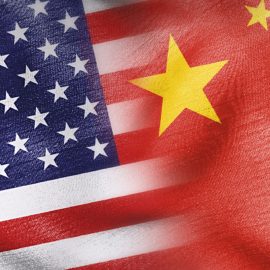
Who’s Vivek Ramaswamy? What does he say about his background, ideas, and vision for the future?
Ramaswamy is a presidential hopeful and a successful biotech investor with a striking career at the intersection of science, finance, and law. He also challenges established norms with revolutionary perspectives. On an episode of The Shawn Ryan Show, Vivek Ramaswamy shared his revolutionary vision.
Continue reading for a summary of Shawn Ryan’s Vivek Ramaswamy interview on his podcast.
Vivek Ramaswamy Interview on The Shawn Ryan Show
On The Shawn Ryan Show, Vivek Ramaswamy spoke candidly about his critique of the US political system, his pharmaceutical career, and his political ambitions.
The Vivek Ramaswamy interview demonstrates his commitment to continuous learning and leadership development by actively seeking out and implementing successful strategies from others rather than solely relying on his own knowledge. He has implemented a unique approach to challenge unnecessary bureaucracy within the government, drawing upon an often-overlooked statute (5 USC 3302) that empowers the president to manage regulations related to the Office of Personnel Management.
Ramaswamy’s Revisionist Examination of Existing Systems
Ramaswamy suggested that the FBI’s broad scope has hindered specialized expertise among its staff. To increase efficiency and restore public trust, Ramaswamy proposes abolishing the FBI and redistributing roughly 15,000 of the Bureau’s dedicated workers to other focused federal agencies such as the US Marshals, DEA, and Financial Crimes Enforcement Network. In his view, these agencies have maintained their integrity and could provide FBI staff with clearer directives tailored to their talents.
A Deep Dive Into American Politics: Ramaswamy’s Review
In addition to his critiques of the current political landscape, Ramaswamy emphasizes that presidential candidates must possess a deep comprehension of the US Constitution and legal code.
Ramaswamy has also expressed the importance of engaging younger generations in the political process. In this interview with Shawn Ryan, he elaborated on the necessity of igniting their interest and participation.
By personally investing over $15 million into his own campaign, Ramaswamy bucks conventional financing norms and makes a statement about avoiding over-reliance on major donors. This self-funded approach demonstrates his commitment to run an independent effort.
Case Against Bureaucracy: Call for Democratic Leadership
Ramaswamy has turned a critical eye toward the expansive federal bureaucracy, believing real governing authority resides more with unelected administrators than elected officials. In a revolutionary stance, he has proposed imposing term limits on bureaucrats rather than elected leaders as a means to shift power dynamics. His vision calls for empowering younger individuals aligned with core democratic principles.
News or Noise: Ramaswamy’s Take on the Role of Mainstream Media
Beyond his reservations about mainstream media’s influence, Ramaswamy stresses the importance of voters accessing unfiltered, factual information about candidates—free from potential distortion by journalistic outlets.
This recent conversation with podcaster Shawn Ryan exemplifies Ramaswamy’s appreciation for direct voter engagement platforms. He commended Ryan’s role in facilitating candid dialogue and encouraged him to continue providing this valuable space for the public to connect with candidates firsthand.
Big Pharmaceuticals and the Finance Sector: A Critical Examination
Ramaswamy has voiced criticism of pharmaceutical industry practices, particularly inconsistencies within regulatory frameworks highlighted by the pandemic response. He has questioned the stark contrast between the expedited COVID-19 vaccine approval timeline and more lengthy drug authorization processes commonplace in pre-pandemic days.
Also, Ramaswamy takes issue with certain financial sector giants such as BlackRock and Vanguard. He argues their asset management decisions, intended to promote corporate policies, too often come at the expense of representing shareholder interests as expected.
Charting a Way Forward: Ramaswamy’s Propositions for Change
In outlining his proposals for federal reform, Ramaswamy has emphasized the need for leadership that possesses practical expertise in efficient operations. He advocates bringing more real-world experience to governing in order to address the nation’s complex challenges.
Ramaswamy believes America has a window of approximately 20 years to take preventative action on looming issues that could substantially impact its future trajectory. His perspective underscores the urgency and foresight required when enacting comprehensive solutions.
Ramaswamy identified federal agencies he intends to abolish, which include the Department of Education, CDC, IRS, ATF, the Nuclear Regulatory Commission, and the FBI.
Strategies for Recalibrating Federal Governance
Ramaswamy has outlined a comprehensive federal reform vision, including proposals related to staffing across the bureaucracy. He has outlined potential changes impacting strategic roles in agencies like the Office of Personnel Management and the Office of Management and Budget. While some plans remain in development, he aims to streamline governmental operations.
An ambitious early initiative involves large-scale competency and personality assessments of federal employees. The stated goal is to enable a data-driven, 50% workforce reduction within his first year as president. Ramaswamy’s initial timeline targets a review process by next February, aiming to finalize an implementation team by March 1.
Protections, Downsizing, and Reinventing: A Hijack of Civil Service?
Ramaswamy has critiqued previous presidents’ legal interpretations. He proposes regulatory reforms aimed at downsizing bureaucracy while spurring economic prosperity. He takes issue with corporations and elites making unilateral choices impacting society, pledging to restrict taxpayer funds from institutions that he believes undermine national sovereignty.
Ramaswamy has vocally pushed back against the World Economic Forum’s inclusion of his name on their “Young Global Leaders” list without his consent. His unconventional stances challenge prevailing understandings and applications of civil service policies.
Looking ahead, he anticipates managing executive branch operations in his potential first year as president. Notably, he uses the term “deep state” for this sector, indicating a belief that substantial transformation is viable without requiring congressional approval.
The Makings of Ramaswamy: Personal Journey and Political Ideologies
Vivek Ramaswamy’s upbringing was shaped by his immigrant parents’ pursuit of the American dream in Cincinnati, Ohio. Their example of perseverance instilled in him a robust work ethic from an early age. One formative experience was observing his father’s dedication during layoffs at General Electric. He worked days while attending law school at night, teaching the younger Ramaswamy the meaning of true commitment.
Interestingly, Ramaswamy’s brother found an unexpected passion for tennis due to their father’s busy schedule. What began as a casual hobby blossomed into a standout national ranking, showcasing how adversity can nurture growth. These early challenges fueled a striving spirit in both siblings.
Intellectually drawn to finance and biotech investing, Ramaswamy later shifted gears by enrolling at Yale Law School, further expanding his knowledge. His eclectic experiences even include a stint exploring stand-up comedy in New York after graduating. This rich tapestry reflects Ramaswamy’s curious mind and drive to fully embrace opportunities.
Nurture and Nature: Tracking Ramaswamy’s Political Ideologies Exchange
On The Shawn Ryan Show, Vivek Ramaswamy explained how his political ideologies were deeply influenced by his upbringing and environment. Attending his father’s night law classes, where figures such as Clarence Thomas and Antonin Scalia engaged in vigorous debates, fostered an early intellectual curiosity that would shape his perspectives.
Initially aligning with libertarianism’s focus on individual liberty, Ramaswamy’s views gradually evolved into a more pro-American stance. This transition was partially fueled by inconsistencies he observed among fellow libertarians in defending certain positions, such as his proposal to protect political expression as a class from discrimination.
Ramaswamy also began emphasizing cultural pillars like faith and family that are sometimes neglected in libertarian circles. He cites examples of belief-based intolerance, such as a woman reprimanded for wearing a red sweater on Fridays in honor of veterans.
While his political journey attracts attention, Ramaswamy actually aspired to be a scientist after attending public school. This led him to study biology at Harvard before various influences—including his family’s perspectives and unusual interests combined with figures such as Bill Clinton—sparked a lifelong passion for politics.
Ambition Unleashed: Geopolitical Analyses and Presidential Aspirations
Ramaswamy has demonstrated resolute commitment to his political ambitions, expressing a desire for a resounding mandate from the American people in the form of an electoral landslide victory. He aims to secure overwhelming moral endorsement through the democratic process.
Valuing platforms such as Shawn Ryan’s YouTube channel that facilitate open discourse, Ramaswamy consistently seeks opportunities to engage voters directly. His appreciation for such forums reflects a belief in maintaining transparent lines of communication throughout his journey.
The Industry Insider: Ramaswamy’s Professional Insights
In the Vivek Ramaswamy interview on The Shawn Ryan Podcast, Ramaswamy shared his insider views on Big Pharma and the asset management industry.
Decoding Big Pharmaceuticals: Insights and Criticisms
Vivek Ramaswamy’s career spans the fields of science, finance, and law. He founded Roivant Sciences, a biopharmaceutical company dedicated to reviving promising drug candidates that were previously abandoned by other firms.
Ramaswamy has been outspoken in critiquing certain practices within the pharmaceutical industry. He argues regulatory inconsistencies too often shield inefficiencies and unethical behavior rather than incentivizing innovation.
Asset Management Under the Loupe: Challenging Corporate Policies
Ramaswamy has criticized certain dominant asset management firms, arguing they wield client capital to advance corporate agendas misaligned with core investor interests. He labels companies engaging in such practices the “ESG cartel.”
However, Ramaswamy’s stance pivots to advocating for index funds aimed at maximizing long-term shareholder value as their guiding principle. Funds such as Strive reflect his belief in undivided fiduciary responsibilities to clients.
Strive’s Success: Shaping Industry Norms for Shareholder Value
Ramaswamy discussed the inner workings of Strive and its potential to reshape industry norms. His strong focus on 2nd Vote underlined the key role individual entrepreneurs play in driving positive change.
Wrapping Up: A Revolutionary Embarking on the Road to Change
The exploration of Vivek Ramaswamy’s thought-provoking perspective on this episode of The Shawn Ryan Show touched on diverse areas including political systems, bureaucracy, media, and pharmaceuticals, and it concluded with a compelling call to action.
Ramaswamy’s strategic approach, his insightful understanding of procedural complexities, and his unwavering focus on impactful change paint a vivid picture of his commitment and the journey of his reform ideas.
The conversation closes with a strong emphasis on his dedication to significant progress and driving positive change within the governmental system, highlighting his consistent alignment with this vital cause.
Leveraging Shawn Ryan’s podcast, Ramaswamy fosters deeper connections with voters through engaging content, including behind-the-scenes footage, self-defense instruction, and regular live chats. These efforts contribute to strengthening relationships with both followers and donors.
Context
Vivek Ganapathy Ramaswamy, an American entrepreneur and presidential candidate, has made a name for himself by challenging the status quo in both business and politics. Drawing on his background in biology, law, and finance, Ramaswamy founded the pharmaceutical company Roivant Sciences in 2014. He has since set his sights on the 2024 Republican presidential nomination.
Through platforms like Patreon, Ramaswamy aims to build genuine connections with his supporters by giving them behind-the-scenes access and hosting live chats each month. He also provides self-defense tips, demonstrating his commitment to his followers’ wellbeing. By continually engaging with his base in this direct way, Ramaswamy hopes to evolve as a leader.
One notable pillar of Ramaswamy’s approach is his critique of bureaucracy within governmental institutions, which he sees as excessive. He points to statutes such as 5 USC 3302 as tools to empower the president to streamline regulations. Additionally, Ramaswamy stresses the importance of leadership development through learning from others’ successes.
While Ramaswamy provides an analytical perspective on topics such as American politics and the pharmaceutical industry, it’s important to recognize that reasonable people can respectfully disagree on complex issues. Ramaswamy will likely continue stimulating thought-provoking discussions.
Learn more:
Related Summary
In Woke, Inc., Vivek Ramaswamy argues that, through “Wokenomics,” corporations falsely signal virtue to cover greed and corruption. He contends they sell not just products but a distorted worldview that polarizes society while letting them influence policy and amass political power. Using current events and personal stories, Ramaswamy outlines five solutions to counter this corporate co-opting of social justice that he sees as weakening democracy. Our guide distills Ramaswamy’s perspective and situates it alongside supporting and opposing views on the societal role of corporations.






